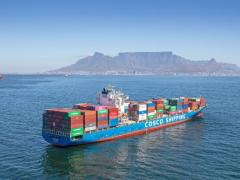Agricultural exports from Chile could benefit from 30% duties on South African fruit and wine outflows to the US if the Government of National Unity fails to avoid the August 1 tariff increases confirmed by the Trump Administration last week.
This concern was raised during a tariff briefing by XA Global Trade Advisors on Friday.
“A key danger to South African exports is not only the tariffs that the US imposes on South African goods, but also the size of the tariffs imposed on South Africa's competitors,” Professor Lawrence Edwards from the School of Economics at the University of Cape Town said.
The tariffs initially announced on April 2, which were subsequently paused for 90 days and then reconfirmed without any seeming trade reprieve despite May’s high-level delegation meeting in Washington, mean South Africa is at a distinct disadvantage compared to some US trade competitors.
Edwards says according to UCT’s analysis, “30% reciprocal tariff places us on the upper end of the countries”.
Whether or not President Donald Trump was accurately advised about South Africa’s apparent “trade surplus” with the US, which has been proven inaccurate by various sources, is immaterial at this stage.
Of greater importance is that South Africa could find itself at the receiving end of diverted exports if other countries become too price-competitive, Edwards warned.
“That amplifies the negative effect of the tariffs on South African goods,” he said.
“If the competitors get lower tariffs compared to us, we could find that the export losses are accentuated.”
A search of which exports and countries pose the biggest tariff threat to South Africa has identified Chile and Peru – especially the former – as key competitors for local agri exports destined for the US.
Both South American competitors are currently facing 10% tariffs on their agri exports to the United States as part of a broader US trade policy adjustment affecting 97 countries.
If the 30% tariff increase comes to pass on August 1, Chilean grapes, citrus fruits, blueberries, cherries, apples, pears, table grapes, and wines could price South Africa's peer exports out of the US market.













